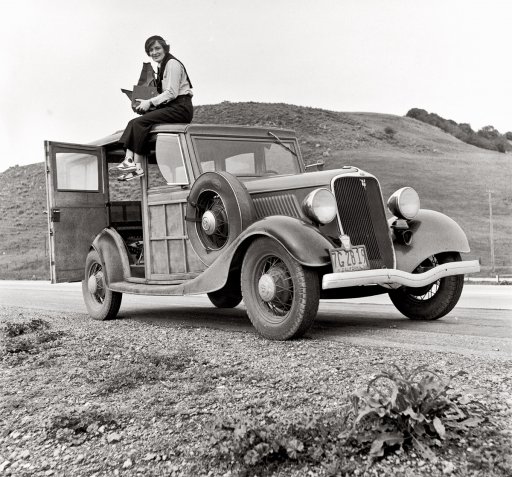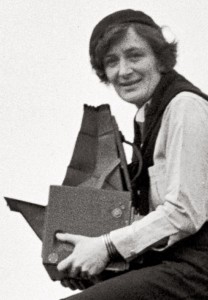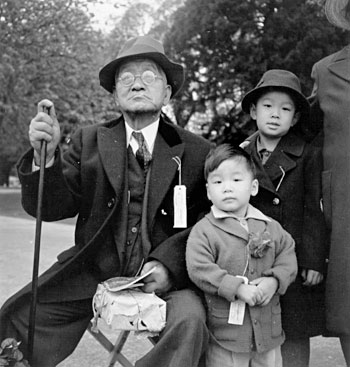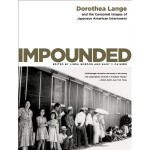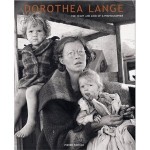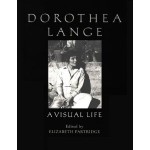DOROTHEA LANGE
She has been called America’s greatest documentary photographer.
This photo of Dorothea Lange was taken by Rondal Partridge, son of Imogen Cunningham. She is holding a Graflex 4×5 single lens reflex camera, which takes sheet film.
After being educated in photography at Columbia University in New York City, Lange moved to San Francisco and opened a successful portrait studio.
She married, had two sons, then once the Great Depression hit, she turned her lens from the studio to the streets. Her images of unemployed and homeless people captured the attention of many and led her to work for the Farm Security Administration.
In 1935 she divorced her first husband and married her second, Paul Taylor, a professor of Economics at UC Berkeley. Both were passionate about social and political issues and worked together documenting rural poverty and the exploitation of sharecroppers and migrant workers.
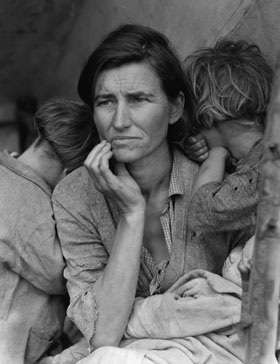 Lange’s best known photograph titled, “Migrant Mother, 1936″ captures this thirty-two year old mother whom she described as “desperate and hungry.” She recounted her conversation in a 1960 magazine article: “…She said that they had been living on frozen vegetables from the surrounding fields, and birds that the children killed. She had just sold the tires from her car to buy food. There she sat in that lean-to tent with her children huddled around her, and seemed to know that my pictures might help her, and so she helped me. There was a sort of equality about it.”
Lange’s best known photograph titled, “Migrant Mother, 1936″ captures this thirty-two year old mother whom she described as “desperate and hungry.” She recounted her conversation in a 1960 magazine article: “…She said that they had been living on frozen vegetables from the surrounding fields, and birds that the children killed. She had just sold the tires from her car to buy food. There she sat in that lean-to tent with her children huddled around her, and seemed to know that my pictures might help her, and so she helped me. There was a sort of equality about it.”
In 1941 Lange won a Guggenheim Fellowship for excellence in photography, but when Pearl Harbor was attacked she gave up this prestigious award to photograph the forced relocation of Japanese Americans to internment camps like Manzanar. Her powerful photographs were so clearly critical of the government’s policy that the Army impounded them.
Impounded: Dorothea Lange and the Censored Images of the Japanese American Internment– a book with about 100 never before published photos from her 800 picture archive, is available on Amazon, as are many other classics with her images.
Check out some of Dorothea Lange’s work if you can, and see the raw emotion she captures in the human condition. There’s a reason she has been described as American’s best documentary photographer.

